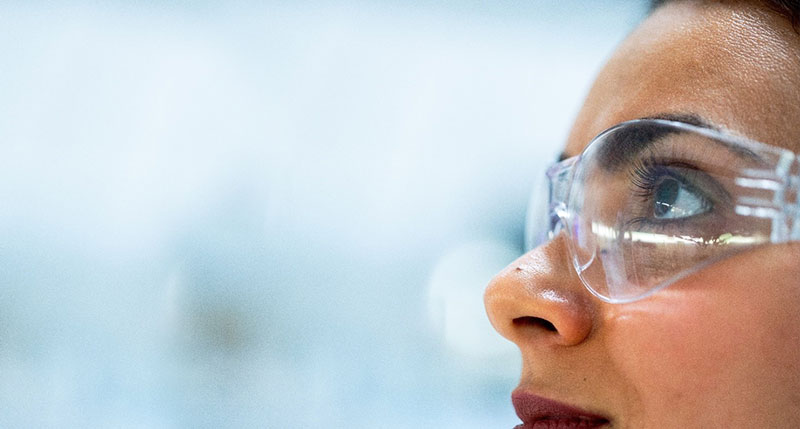If you’re like most Americans, you’re spending more time than ever at home this summer. And while you’re reaching new heights in cooking, cleaning, yard work and home projects, you may not have considered that each of these activities can cause eye injuries if you’re not careful to wear protective eye protection.
Did you know that half of all reported eye injuries happen at home, while people are doing everyday chores like cutting the grass, working in the garage, cleaning and preparing meals?
There are hazards in and around your home that could permanently injure or damage your eyes. Such injuries can even result in blindness.
All it takes is one millisecond to cause a life-altering injury to your eyes that could steal or damage your gift of sight. Even if you’ve done such activities in the past without incident, neglecting to protect your eyes in high-risk household situations can cause an injury―and a lifetime of regret.
This summer, make it a priority to buy and wear a pair of protective safety glasses. We recommend for each member of the family a pair that is approved by the American National Standards Institute (ANSI). Approved safety glasses will have a “Z-87” stamped logo on the frames. These are widely available and reasonably priced at both your local hardware store and big-box home building centers.
Nearly 40 percent of eye injuries at home occur in the garden or yard. Projectiles from the lawnmower or debris kicked up from electric trimmers pose a danger of high-speed projectiles hitting the eyes.
To make sure that you don’t become a preventable eye injury statistic, here’s how to protect your vision while working around the house:
- When you’re cutting the grass, wear safety goggles or safety glasses that include side protection to protect objects from entering the eye at all angles. It’s a best practice to visually check your lawn before starting the lawnmower, to remove any large sticks, pine cones or other debris that could become a projectile.
- Before you use the power trimmer, put on your goggles or safety glasses PLUS a face shield.
- Need to saw, cut, sand or trim something with a power tool? Wear protective safety goggles.
- Turn off power tools to protect bystanders, such as when a child or other member of your family approaches. If you have a helper on your project, make sure they’re wearing correct eye protection while tools are in use.
- Chemicals can irritate eyes: When applying fertilizer or pesticides to your yard – including lime dust or rose dust – wear protective goggles so these chemicals don’t irritate the delicate tissues of your eyes.
- Become a label reader. Follow all of the product instructions on power tools you’ll be operating, and heed the warnings on the chemical bottles and packaging you’re using.
- Protect eyes from cleaning products. When you clean your home, remember that bleach, cleaners and other household chemical cleaning products cause at least 125,000 eye injuries each year. Wear eye protection whenever you use these chemicals.
- Wash your hands. On average, people touch their faces 16 times an hour. While that’s a bad idea during the Covid-19 pandemic, it’s also dangerous to your eyes if you have chemicals or other contaminants on your hands. Wash your hands after using cleaning chemicals before you touch your eyes or your face.
- Prepare foods safely. If you’re chopping onions, garlic or hot peppers or other strong ingredients, be sure to wear eye protection. Even getting a small amount of these powerful ingredients in your eye will be painful and irritating. It can easily be prevented by using a physical barrier like safety glasses, goggles or a face shield. And wash your hands thoroughly before touching your eyes after being in contact with these delicious but potentially harmful substances.
While spending time at home, pay attention to eye safety! Always wear the proper protective eyewear to keep your vision safe. By doing so, you’ll set an excellent example for your children so they will adopt healthy eye practices that support a lifetime of good vision.





